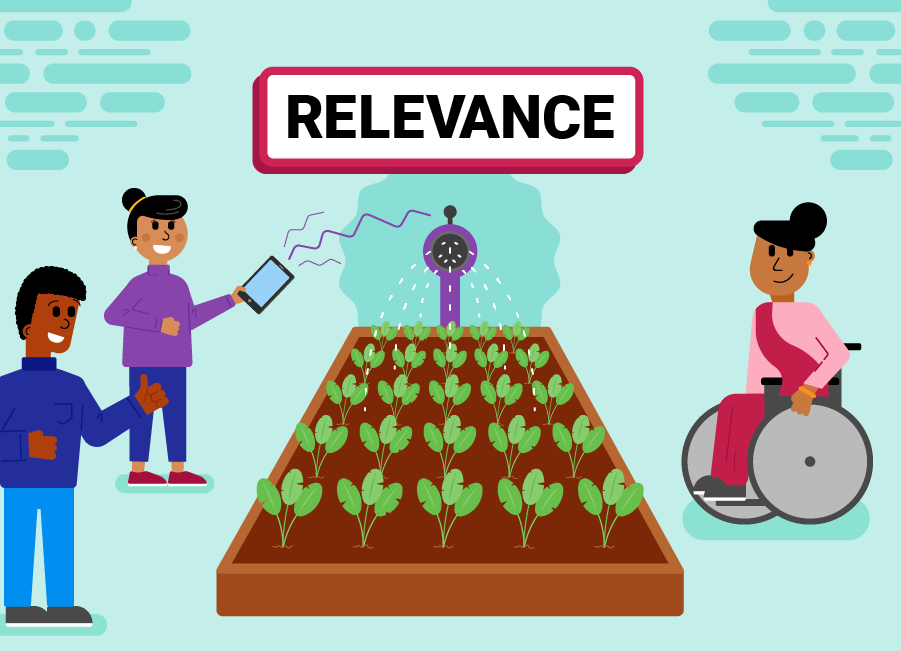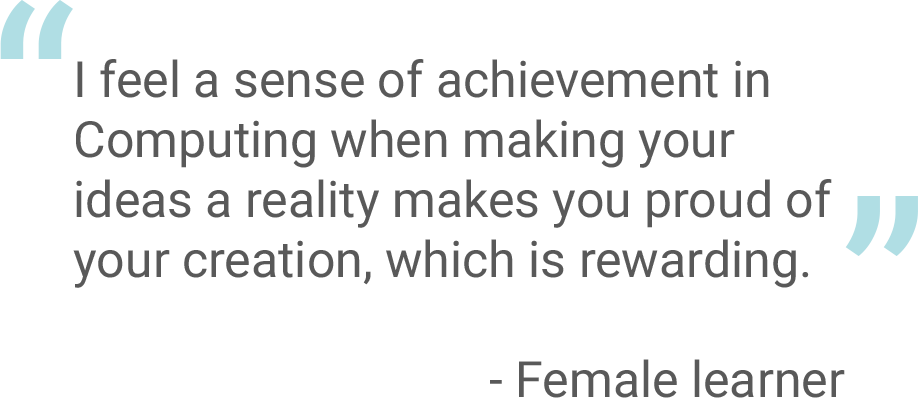
Research indicates that girls highly value using computing in real-world applications. The Relevance intervention, developed by Apps for Good and the Raspberry Pi Foundation, aimed to assess whether demonstrating how computing can solve real-world problems in meaningful contexts would enhance female students’ interest in studying computing. Previous research has shown that often male students are interested in the content of computing courses, whereas female students often prioritise the context that computing can be used in. We used the concept of identification, which suggests that learners are more likely to engage with a subject when it connects to their identity, making it more meaningful and increasing their interest. Our materials encouraged learners to explore their connections to their communities and use these connections as a basis for designing a mobile phone app.
| Date range of intervention | April–August 2021 (pilot study) and January–April 2022 |
| Age of participating students | 12–13 years old |
| Aim of intervention | To examine whether demonstrating the relevance of computing in solving meaningful real-world problems would increase female pupils’ interest in studying computing |
| Intervention | Up to 13 weeks of computing lessons to identify real-world problems, then design and create an app using AppLab to start to address the problem |
| Method | We conducted a pilot study with three secondary schools. Based on teachers’ feedback from this pilot, we ran a comprehensive randomised controlled trial (RCT) with 97 secondary schools Schools were assigned at random to either the ‘treatment’ group, using the intervention resources, or the ‘control’ group, who continued with their usual computing lessons |
| Evaluation | The relevance intervention was evaluated independently by an organisation called Behavioural Insights Team (BIT). BIT’s evaluation was primarily based on quantitative data collected from learners at the start and the end of the trial using a validated instrument called the Student Computer Science Attitude Survey (SCSAS), which asks learners about their attitudes towards Computing, along with a few additional survey questions specific to this evaluation. The evaluation team analysed the data about girls’ attitudes towards computing and compared the differences between the control group and the treatment group. BIT also visited five schools in the treatment group to collect qualitative data through lesson observations, teacher interviews, and focus groups with students who had participated in the lessons. This data was analysed using case study methodology. |

The intervention showed a small positive impact on girls’ perceived relevance of and interest in computing, although this effect did not reach statistical significance. The trial evaluation did not find statistically significant evidence that participating in the Relevance intervention increased girls’ intention to study GCSE Computer Science.
Teachers found the resources useful and intended to use them again with future Year 8 classes. Some female students reported increased engagement and enjoyment in computing, particularly with creative elements, but this may not have translated into a significant shift in their perceived relevance of computing. Teachers noted that multiple interventions are necessary to increase girls’ uptake of GCSE Computer Science, which suggests that situating computing in relevant contexts alone might not overcome systemic barriers such as societal stereotypes.
Establishing systems to monitor and ensure consistent implementation across schools, along with using administrative data to track actual GCSE subject choices, would provide insights into the long-term impacts of the intervention.
Childs, K. (2021). Factors that impact gender balance in computing. In Understanding computing education (Vol. 1). Proceedings of the Raspberry Pi Foundation Research Seminars.
Leonard, H. C., Quinlan, O., & Sentance, S. (2021, September). Female pupils’ attitudes to computing in early adolescence. In Proceedings of the 2021 Conference on United Kingdom & Ireland Computing Education Research (pp. 1-6). (Open-access author copy, presentation slides, and video presentation)